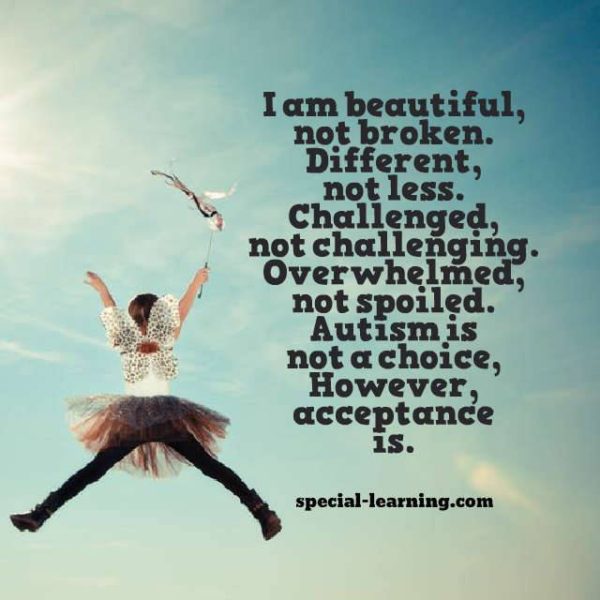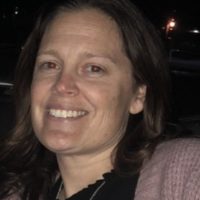
What would we do without differences? Where would we be without the unique spectrum of minds all looking at this world in neurologically distinct ways? Would we know about the theory of relativity if Einstein had not obsessively repeated sentences until he was 7 years old? Would we have Symphony No.40 in G minor or Don Giovanni, if Mozart wasn’t compelled to constantly move his hands and feet? Difference is what makes life interesting and creative; something we should keep in mind during National Autism Awareness Month.
Autism isn’t just one thing: it’s a range of individually specific ways of connecting with others and processing information. For some, a diagnosis of Autism can simply mean having a few more social challenges. For others, it can mean being completely non-verbal and showing intense discomfort in social settings.
It’s likely that you have interacted with a person with Autism without even knowing. Have you ever been out in public and witnessed someone having a “meltdown”? Have you ever seen a kid suddenly become overwhelmed by what seems like nothing at all? Have you ever found yourself on a plane seated next to a screaming child? Most likely you have had at least one of these experiences. Now, not all of these scenarios means the individual has Autism, but we often jump to blame or criticism when we witness such behavior. Think back to what you thought the last time you saw a child having a meltdown. Were you annoyed with the child or with the parent for not removing the child? Did you feel bad for the child or the parent? Did you turn and walk away because you felt uncomfortable?
As the CPST Coordinator at Catalyst, I’m keenly aware of the challenges these individuals and their families’ face. I asked a couple of parents, whose children were diagnosed with Autism, what they wish people knew about their lives, and what they wish people would do when interacting with their child.
Q. What do you wish people wouldn’t do?
I guess one thing is that I don’t always expect others to know what to say to me. People avoid me because they don’t know what to say to me about my child (who is also disabled). That’s ok. It’s just me. You can be awkward about my kid and I’m still cool with you. You can also ask me questions. I love to talk about my kids.
It’s wonderful if your “cousin’s wife’s brother-in-law’s kid”, who also has autism, talked at age three and built model trains from scratch at age four, but my kid is an individual and we don’t know what her potential will be yet. I’m ok with that. Good for that kid, though.
Please don’t stare….she’s human…just louder.
Q. What do you wish people would do?
I wish that parents of typical children would do a better job of explaining to their kids that some kids are different and that it is ok to be different. I can remember being at a park with my son when he was three or four. At that time, he followed the other kids– sometimes kids would let him trail along with them; other times, the kids would tell him to stop following them and leave them alone. Some even called him weird. This just broke my heart because he only wanted to play. Modeling after his typical peers is how he learned to play. Being a friend to someone with autism can be the most rewarding experience you can give to your child.
I had a hair stylist once look at me and kindly say, “How long has she been diagnosed? How can I help her with making this hair cut easier for her?” I wanted to hug this woman and I am not a hugger.
Please educate your kids that people are different and just because she makes strange noises, sings random phrases from Toto songs, and echoes what you just said, does not mean she’s weird or less than human.
Q. What do you wish people would know?
Please understand that I have come a long way into I’m willing to accept things as less than perfect. Give me some credit for that. It was so hard for me. It was hard for her during my evolution.
For every day I’ve laid in bed and cried, there’s been a day when she’s amazed me more than I ever thought possible with her musical abilities, photographic memory, and talent of repeating something I’ve said at the exact wrong time.
I’m scared. All. The. Time.
I worry about what will happen to her when I die. A lot.
I have seen the most awful treatment of her in public. I’ve also seen the most beautiful acts of kindness from strangers.
Now that we’ve heard from these parents, what can we do? Who wants to help? Let’s teach ourselves and our children to accept others, especially those who may not be exactly like us. One thing I have learned in working with those on the spectrum is to let them think, let them watch, but include them like you would any other friend. Sometimes, the simplest thing we can do to help is to just be kind. If you have a little patience, I guarantee you and your child will make great friends!
So, this month (and, really, let’s not confine it to a month), take a moment to extend some compassion and awareness to people different from you. You’ll learn more about the other person, about yourself and about our shared humanity in the process.
 Jamie Starkey has been employed with Catalyst Life Services since 2006. She started as a children’s case manager and is now the case mgmt. coordinator for both children and adult case managers. She has been in this role for 3 years. Her duties include oversight of the case managers, community education, case consultation and community training for staff. Jamie was also a lead Facilitator of Richland Aspirations, a social and vocational program for teens and adults on the autism spectrum. Jamie’s passion is working with kids and adults to help them overcome challenges and live a meaningful life in our community.
Jamie Starkey has been employed with Catalyst Life Services since 2006. She started as a children’s case manager and is now the case mgmt. coordinator for both children and adult case managers. She has been in this role for 3 years. Her duties include oversight of the case managers, community education, case consultation and community training for staff. Jamie was also a lead Facilitator of Richland Aspirations, a social and vocational program for teens and adults on the autism spectrum. Jamie’s passion is working with kids and adults to help them overcome challenges and live a meaningful life in our community.